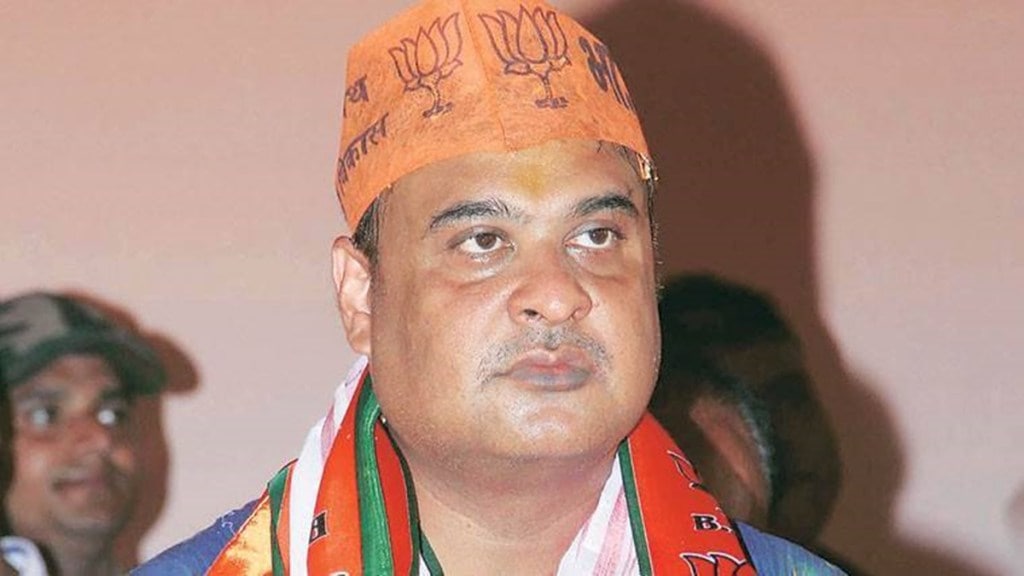While over 300 protestors were detained in three districts of Assam’s Barak Valley on Tuesday during a 12-hour bandh called by political parties to protest against the delimitation exercise of constituencies in the state, Assam Chief Minister Himanta Biswa Sarma on Sunday asserted that there was no problem in the proposed delimitation for Assam’s 126 assembly seats and 14 Lok Sabha seats released by the Election Commission of India on Tuesday (June 20).
CM defends delimitation exercise
Stating that the draft proposal is being opposed by those who don’t understand the process or are looking at imminent electoral losses, Sarma said, “We are a secular nation where constituencies are determined by keeping everyone’s well-being in mind. Reservation is done based on the population figure of a specific community.”
He said “there has been no problem” with the exercise of redrawing assembly and Lok Sabha constituencies in Assam, which would help the state’s indigenous communities gain the upper hand in the electoral process.
Earlier, on June 20, while speaking to reporters, Sarma had said, “According to what I’ve seen on television, public enthusiasm has increased dramatically. The indigenous Assamese “Khilanjia” interests are guaranteed in the draft which has been prepared for the future of the country and people of Assam.”
Proposal angers many
The proposed delimitation has angered many in Assam’s Barak Valley. A bandh called by the Barak Democratic Front (BDF) on Tuesday was supported by the Congress, Trinamool Congress, and the All India United Democratic Front (AIUDF).
The shutdown began at 5 am with shops and business establishments shut in the three districts of Barak Valley – Cachar, Karimganj and Hailakandi.
In the last assembly election in the state, held in 2021, the three districts had 15 assembly constituencies but the proposed delimitation will bring the number down to 13. Also, the names of a few constituencies will be changed as per the draft.
Political leaders protest
Several political leaders, including from the ruling BJP, the Congress, Trinamool Congress and left parties, and voters are protesting against the proposed delimitation due to the reduction and reshuffling of seats.
Transport Minister Parimal Suklabaidya, who represents the Dholai assembly seat, said people of his constitutency are unhappy with the proposal for changing the name of the constituency from Dholai to Narsingpur, while Congress MLA Kamalakhya De Purukayastha said that the proposal is a “conspiracy against the people of Barak Valley and also against a particular community”.
Communal in spirit
The abolition of several Muslim-majority assembly seats as they exist is in the eye of the delimitation storm. Many of these constituencies are currently represented by legislators from Opposition parties which belong to the state’s Bengali-origin Muslim community.
As per the delimitation proposal, those seats will be either merged or subsumed under other newly-created constituencies – many of them with majority Hindu populations.
Three assembly constituencies where Muslims are dominant have been reserved for candidates belonging to Scheduled Castes and Scheduled Tribes, effectively debarring minority leaders from contesting.
The AIUDF stated that the proposal limits the number of Muslim-majority Assembly constituencies to 22 from the earlier 29.
In 90 constituencies, the indigenous people from the state would be in the majority, while in 10 to 12 seats the Bengali people would be dominant.
“The Election Commission of India prepared the delimitation draft in such a way that Muslim representation in the Assembly can be reduced,” AIUDF MLA Karim Uddin Barbhuiya wrote in a tweet.
Draft proposal based on 2001 Census
Also, the fact that the draft delimitation proposal is based on the 2001 Census is being questioned. Assam Trinamool Congress chief Ripun Bora accused the ECI of following the diktats of the BJP.
”The draft delimitation proposal published by the EC is prepared on the basis of the 2001 census, which is not correct and can’t be accepted.”
Stating that there is a change in the population pattern in the state, Bora said that if the delimitation happens on the basis of the latest census data ie 2011, there will be a different delimitation altogether.
ECI on redrawing of boundaries
The ECI stated that it has carried out the delimitation exercise as per Section 8(A) of the Representation of the People Act, 1950, which only allows redrawing of boundaries and not any increase in the number of constituencies.
In the draft, the total number of legislators and parliamentarians remain unchanged. However, the ECI has proposed raising the number of assembly seats reserved for the SCs from eight to nine, and for the STs from 16 to 19.
If the draft proposal is approved, the number of assembly constituencies in Muslim-majority districts will reduce while those in areas inhabited by communities considered indigenous to Assam will go up.
The ECI has also planned to change the geographical boundaries of most of the constituencies, both assembly and the Lok Sabha, while eliminating some seats and creating a few new ones.
Besides reducing the number of assembly seats in the Barak Valley, the commission has proposed to reserve the Silchar Lok Sabha seat for the SCs and has proposed to make the Karimganj seat a general seat, which was an SC reserved seat since Independence.


